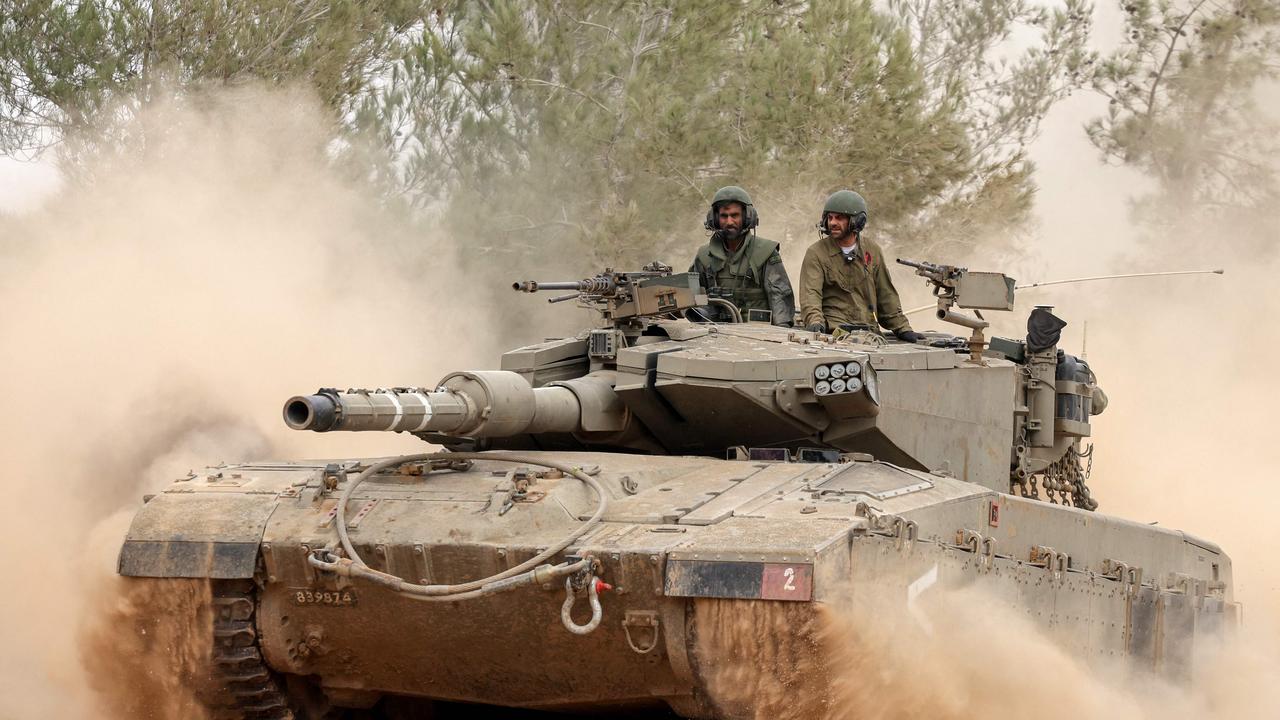[ad_1] Israeli troops battled Hamas militants in the southern Gaza Strip on Tuesday after expanding their offensive deeper into the besieged territo
[ad_1]
Israeli troops battled Hamas militants in the southern Gaza Strip on Tuesday after expanding their offensive deeper into the besieged territory, with warnings that an “even more hellish scenario” was unfolding for trapped civilians.
Israel had initially focused its offensive on the north of the territory, but the army is now also dropping leaflets on parts of the south, telling Palestinian civilians there to flee to other areas.
Israeli tanks, armoured personnel carriers and bulldozers were seen on Monday near the southern city of Khan Yunis, which is packed with civilians who fled their homes further north in the territory earlier in the war.
The army said Monday it was taking “aggressive” action against “Hamas and other terrorist organisations” in Khan Yunis, warning that the main road in the north and east of the city “constitutes a battlefield”.
Hamas claimed via Telegram its militants had targeted two personnel carriers and a tank near Khan Yunis.
Rocket salvos were again fired from Gaza towards Israeli territory. As the war spreads, international aid organisations have warned that civilians in the densely populated territory are running out of places to flee to.
“Nowhere is safe in Gaza and there is nowhere left to go,” said Lynn Hastings, UN humanitarian coordinator for the Palestinian territories.
“If possible, an even more hellish scenario is about to unfold, one in which humanitarian operations may not be able to respond,” Hastings said in a statement.
In retaliation for the worst attack in its history, Israel has vowed to eradicate Hamas and secure the release of all the hostages held in Gaza.
The Hamas-run health ministry in Gaza says the war has killed nearly 15,900 people in the territory, around 70 percent of them women and children.
In the city of Rafah near the Egyptian border, resident Abu Jahar al-Hajj said an air strike near his home felt “like an earthquake”.
“Pieces of concrete started falling on us,” he said.
In Deir al-Balah further to the north, Walaa Abu Libda found shelter at a hospital, but said her four-year-old daughter remained trapped under rubble.
“I don’t know if she is dead or alive,” said Libda, one of an estimated 1.8 million people displaced in Gaza — roughly three-quarters of the population, according to UN figures.
The Israeli army on Tuesday denied telling the World Health Organization to empty an aid warehouse in southern Gaza within 24 hours before ground operations in the area render it unusable.
On Monday, WHO chief Tedros Adhanom Ghebreyesus wrote on X that his organisation had received a notification from the military “that we should remove our supplies from our medical warehouse in southern Gaza within 24 hours”.
Key ally the United States has cautioned Israel to do more to avert civilian casualties as operations shift to the south.
Israel on Monday said it was not seeking to force Palestinian civilians to permanently leave their homes, but that it was instead seeking support from aid groups to improve infrastructure in a tiny coastal area of Gaza named Al-Mawasi.
“We have asked civilians to evacuate the battlefield and we have provided a designated humanitarian zone inside the Gaza Strip,” Israeli military spokesman Jonathan Conricus said.
Speaking on condition of anonymity, senior Israeli military officials admitted that around two civilians have been killed for every dead Hamas fighter in the Gaza Strip.
“Hopefully it (the ratio) will be much lower” in the coming phase of the war, one of the officials added.
The war has sparked fears of a wider regional conflict, with frequent exchanges of fire with Iran-backed Hezbollah across Israel’s border with Lebanon.
On Tuesday, the Israeli military said its fighter jets had struck Hezbollah positions in Lebanon in response to launches on Monday from Lebanon into Israel.
The Israel-occupied West Bank has also seen a surge in violence, with more than 250 Palestinians killed there since the war began, according to Palestinian authorities.
[ad_2]
Source link



COMMENTS